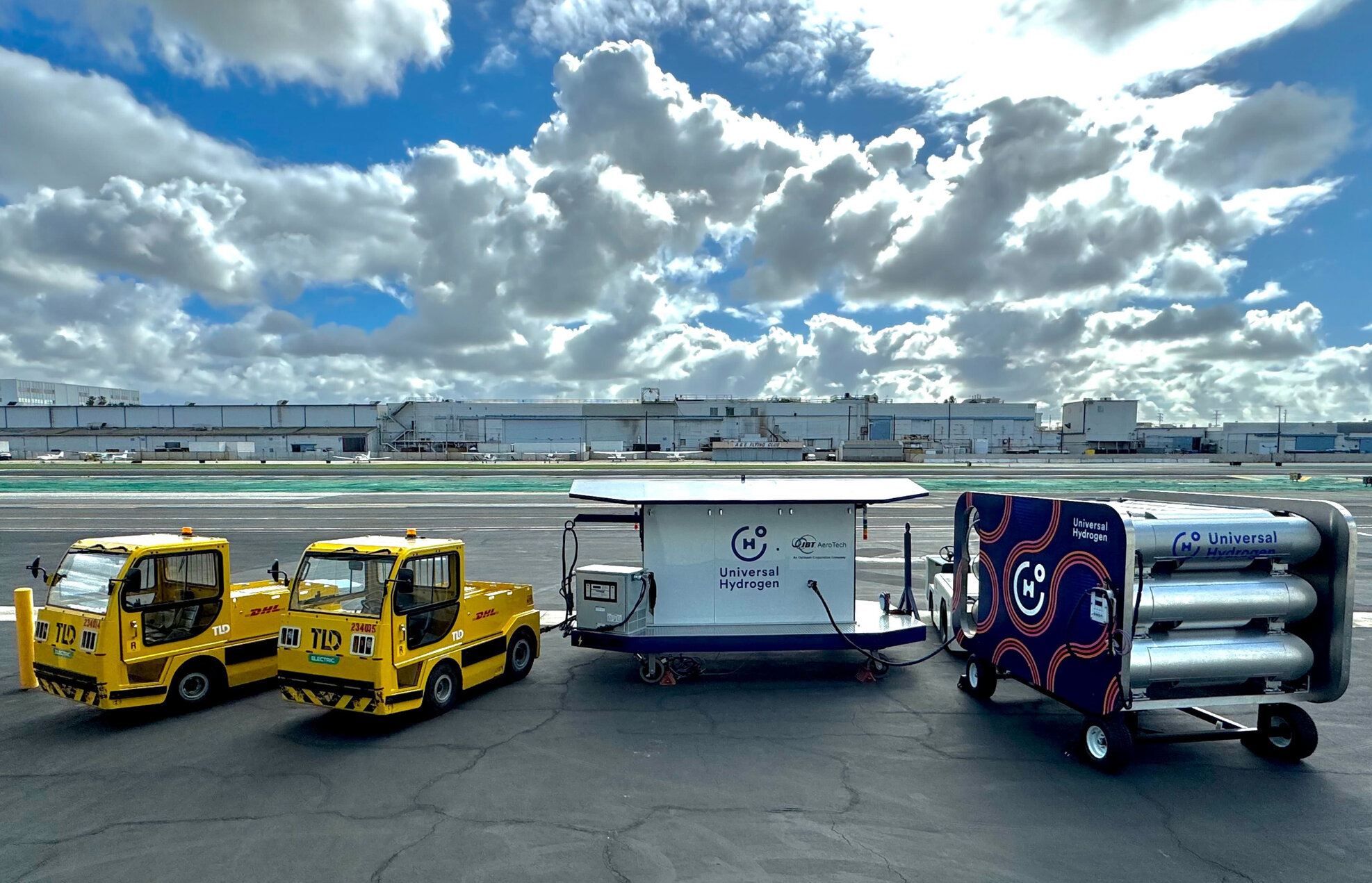Hydrogen fuel services provider Universal Hydrogen has announced the first operational demonstration of the AmpCart H2 developed in collaboration with Oshkosh AeroTech – formerly JBT AeroTech.
On track for operational deployment by the end of 2024, the demonstration unit of the future Oshkosh AeroTech’s AmpCart H2 marks a significant step in decarbonising airport ground operations, Universal Hydrogen said.
The AmpCart H2 provides a near-term solution to the shortage of charging infrastructure for electric ground support equipment at airports and is enabled by Universal Hydrogen’s modular fuelling technology that alleviates the need for purpose-built hydrogen fuelling infrastructure, offering airports the opportunity to be “hydrogen-ready”.
Arnaud Namer, chief operating officer of Universal Hydrogen, said: “In the last 10 years or so, there has been a major push among airlines, airports and ground services providers to electrify airport ground support equipment, but unfortunately the charging infrastructure is significantly lagging, leading to adoption of diesel generators for charging of electric GSE.
“We aim to change that by providing a clean, hydrogen-powered mobile charging solution for airports.”
The recent operational demonstration at Hawthorne Airport in Los Angeles involved the charging of two DHL electrified tractors using a mobile AmpCart H2 prototype and portable hydrogen storage modules.
Hawthorne is the fifth airport at which Universal Hydrogen has utilised hydrogen on airport grounds, “paving the path to hydrogen acceptance as an aviation fuel”.
Hydrogen modules are fuelled with green hydrogen off-airport, typically near the point of hydrogen production, and transferred to the airport landside with existing intermodal freight.
From there, the modules are loaded onto a trailer for safe and efficient transportation to any location airside of the airport, facilitating the charging of electric GSE between operations.
Universal Hydrogen claims this approach optimises GSE operations, minimises equipment downtime and is scalable from small regional airports to major hubs.
Rod Williams, chief commercial officer of Universal Hydrogen, said: “Since Universal Hydrogen’s inception we have captured the attention of the industry and partnered with numerous regional airlines to deliver a zero-emissions solution in the mid-2020s.
“For operators of larger aircraft, however, a hydrogen airplane solution won’t enter the market until the mid-2030s, yet they still have a clear and urgent need to decarbonise their operations.
“As these airlines shifted their focus to non-aviation emissions produced by the operation of GSE, we identified the ways in which our unique modular technology could be adapted to meet this need.”
The recent demonstration was witnessed by airline and leasing representatives from DHL, Mercury GSE, Fortbrand, Xcēd and American Airlines.



